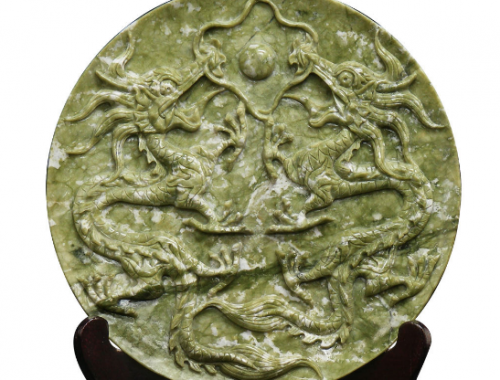
Outshining Our Karma with the Sun of Wisdom
Outshining Our Karma with the Sun of Wisdom World Tribune p. 6 ~ September 10, 2021

Buddhism explains that karma has a lot to do with why we find ourselves in our present circumstances.
While there’s good, bad and even neutral karma, people often associate karma with negative or bad outcomes. This might be because human beings tend to take the good things in life for granted and take particular note of the bad.
Going beyond such perceptions, Nichiren Buddhism offers a liberating and empowering understanding of karma.
But first, let’s take a look at how the idea of karma has evolved.
Karma Means “Action”
In brief, the Sanskrit word karma means “to act” or “action.” We take ac- tion in three ways: through our thoughts, speech and behavior. And our moment-to-moment actions, or causes, remain dormant in our lives as “latent effects” that will eventually manifest when the conditions are right. Our cumulative actions from previous lifetimes determine our present circumstances and personal characteristics.
Predating Buddhism, the idea of karma existed in ancient India, but almost as an absolute. People were compelled to accept the conditions they were born into or the misfortunes they met with as their “karma.” This under- standing of karma comes close to the concept of “fate” or “destiny.”

Later, Shakyamuni Buddha taught that our fate is not predetermined; instead, by striving to take the best actions in the present, we can lead the best life in the future. In addition, the influence of our actions transcends life and death and is carried on into future existences.
Ultimately, based on the Lotus Sutra, Nichiren Daishonin taught that because each of us possesses the Buddha nature, we have the inherent power to free ourselves from the chains of karma in this life and beyond.
Chanting and Spreading the Mystic Law: The Greatest Good Cause
After Shakyamuni’s passing, most Buddhists recognized only a general view of causality. They regarded cause and effect as purely sequential— good causes yield similar good effects while bad causes produce similar bad effects. Based on this view alone, however, it would require lifetimes or eons of intensive practice to cancel out all bad causes from the past and ac- cumulate enough good ones to attain Buddhahood. One would also have to refrain from making any new negative causes, a nearly impossible feat.
In contrast to this general view of causality, Nichiren Daishonin makes a revolutionary statement: “My sufferings … are not ascribable to this causal law.”

1] He clarifies that the deepest negative cause is slandering the Lotus Sutra, or the Mystic Law of the universe. It is to disregard the sutra’s central principle— that all people inherently possess Buddhahood and are equally worthy of respect. To slander the Lotus Sutra, then, means to denigrate or deny our own and others’ true potential and dignity. It represents the ultimate form of evil, and creates the gravest negative causes.
In contrast, the greatest good cause we can make is to revere the Mystic Law that is the essence of all people’s lives. It is to awaken our Buddha nature and help others do the same.
Rather than accumulating minor good causes for lifetimes or eons to do so, we can achieve that awakening right now: We can bring forth the “sun” of our Buddha nature the moment we chant Nam-myoho-renge-kyo to the Gohonzon. This is known as “the simultaneity of cause and effect.”
A passage in the Lotus Sutra states, “The host of sins, like frost or dew, can be wiped out by the sun of wisdom.” [2]

Commenting on this, Nichiren says:
The “host of sins” are karmic impediments that come from the six sense organs, [3] and these are like frost or dew. Thus, although they exist, they can be wiped out by the sun of wisdom. The “sun of wisdom” is Nam-myoho-renge-kyo, which Nichiren is propagating now in the Latter Day of the Law. [4]
By chanting and sharing the practice of Nam-myoho-renge-kyo, the greatest good, we can bring forth the “sun of wisdom” in our lives. Ikeda Sensei explains:
Just as the light of the stars and the moon seems to vanish when the sun rises, when we bring forth the state of Buddhahood in our lives we cease to suffer negative effects for each individual past offense committed.
In other words, this does not deny or contradict general causality. General causality remains an underlying premise of Buddhism. But it is subsumed by what might be termed a “greater causality.” This greater causality is the causality of attaining Buddhahood. It is the causality of the Lotus Sutra and the Mystic Law. [5]
So, while our karma doesn’t just magically disappear, rather than suffer on account of our karma, we can use it to prove the power of our lives and
overcome any and all obstacles. The negative influence of our bad karma pales in comparison to the brilliance of our state of life.

Our Karma Is Our Mission
Let’s take this one step further toward full self-empowerment.
By elevating our lives and facing difficulties head-on, we can inspire countless others. It is through winning over hardships that we prove the power of our Buddhist practice and open the way for all others to awaken to their Buddhahood.
Sensei once encouraged a woman who had lost her husband and was left to raise her young children alone, saying:
By regaining vitality and good health, someone who has been battling ill- ness can light a flame of courage in the hearts of those in similar straits. By creating a happy and harmonious family, a person who has suffered great anguish over discord in the home can become a model for others plagued by family problems.
Similarly, if you—a woman who has been left widowed in a foreign land where she does not speak the language—become happy and raise your children to be fine adults, you’ll be a shining example for all women who have lost their partners. Even those who don’t practice faith will admire you and come to seek your advice.
So you see, the deeper and greater the suffering, the more magnificently one can show proof of the powerful benefit of Buddhism. [6]
“Just as the light of the stars and the moon seems to vanish when the sun rises, when we bring forth the state of Buddhahood in our lives we cease to suffer negative effects for each individual past offense committed.”

By developing our lives through our Buddhist practice and sharing the Buddhist ideal of respect for the dignity of all life, we not only free ourselves from the karmic cycle of suffering, we can turn our karma into our mission, opening the way for many others, for all of humanity, to do the same.
Changing Karma – by the SGI-USA Study Department




